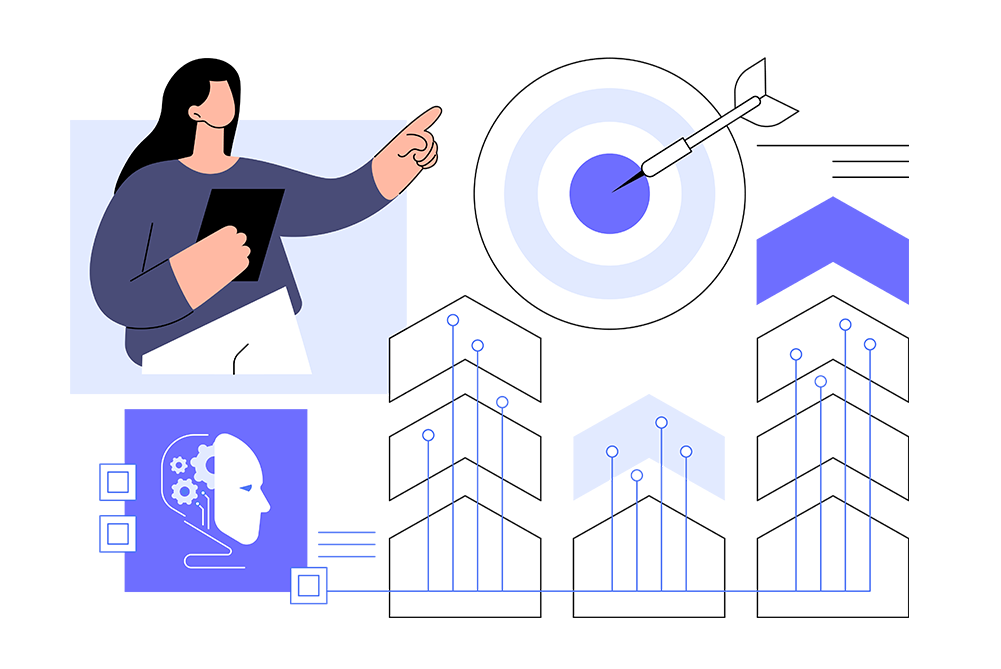Generative AI, initially a subtle presence in the tech landscape, has surged to prominence, marked by breakthroughs like OpenAI’s ChatGPT. Deep learning algorithms, when enhanced with corporate data, are projected to contribute an astounding $2.6 trillion to $4.4 trillion annually across 63 business applications, as per insights from McKinsey & Company. This technology, pivotal in shaping the business world, is not just a fleeting trend but a vital component in the ongoing digital transformation. As we progress into 2024, it is imperative for businesses to stay attuned to the evolving trends in Gen AI, ensuring they remain at the forefront of innovation and competitiveness.
Large Language Models (LLMs), that work behind Chatbots such as OpenAI’s ChatGPT 3.5, 4 and open source LLM Models such as Llama, are revolutionizing marketing and sales through advanced personalization. These models analyze customer data with remarkable precision, enabling businesses to craft highly targeted marketing strategies and content. By leveraging the nuanced understanding and predictive capabilities of LLMs, companies can significantly enhance customer engagement and satisfaction, driving improved sales outcomes and fostering deeper customer relationships.
Successful AI-driven campaigns, such as those implemented by leading eCommerce platforms, demonstrate the power of AI in understanding customer preferences and behavior.
Generative AI (Gen AI) and Predictive AI serve distinct functions in the AI landscape. Gen AI is adept at creating new, innovative content by learning from existing data, often used for tasks like generating text, images, or designs. In contrast, Predictive AI focuses on forecasting and trend analysis, utilizing historical data to predict future outcomes. This differentiation is crucial in understanding their respective applications – Gen AI excels in creative generation and innovation, while Predictive AI is key for strategic planning and decision-making.
The creative sphere is undergoing a radical transformation with the integration of AI. Gen AI tools are now being used for content creation, graphic design, and multimedia production, opening new avenues for innovation and efficiency. This technological integration is not only reshaping how creative content is produced but also raising important questions regarding ethical considerations and intellectual property. An example is Adobe’s integration of generative AI into its Firefly design tools, trained entirely on proprietary data, to alleviate fears that copyright and ownership could be a problem in the future. Businesses leveraging AI in their creative processes are finding new ways to stand out in a crowded market, while also navigating the challenges and responsibilities that come with AI-driven creativity.
AI is playing a pivotal role in elevating customer experience and service. AI-powered chatbots and virtual assistants are providing instant, personalized assistance to customers, revolutionizing customer service dynamics. A Boston Consulting Group survey found that 95 percent of customer service leaders expect their customers will be served by AI bots at some point in the next three years. These AI solutions offer convenience and a tailored experience, significantly enhancing customer satisfaction. Additionally, AI’s capability in analyzing customer feedback and conducting sentiment analysis is proving invaluable in understanding and responding to customer needs and preferences.
The supply chain sector is witnessing a paradigm shift with the implementation of AI. Predictive AI is instrumental in improving forecasting accuracy, optimizing logistics, and managing inventory more efficiently. This not only results in cost savings but also enhances overall operational efficiency. Various case studies illustrate how AI-driven solutions have streamlined supply chain processes, reducing delays and improving delivery mechanisms, thereby significantly boosting business performance.
In the realm of business strategy, AI forecasting is a gameDecision-Makingds in making data-driven decisions, allowing businesses to analyze vast amounts of information for strategic planning and market analysis. AI’s predictive capabilities are invaluable in risk assessment and management, helping businesses to anticipate and mitigate potential challenges. As we move further into 2024, the role of AI in shaping business strategies is becoming increasingly prominent, marking a new era of informed and intelligent decision-making.
As businesses increasingly adopt AI, they must also confront the ethical implications and regulatory challenges that come with it. Navigating this evolving landscape requires a thorough understanding of AI’s impact and the development of strategies for responsible implementation. This includes adhering to emerging regulations and standards, ensuring AI’s ethical usage, and maintaining transparency in AI-driven processes.
To harness the full potential of Gen AI, businesses must invest in the necessary skills and knowledge. This involves not only adopting the latest AI technologies but also investing in education and training for employees. As we look beyond 2024, the trajectory of Gen AI promises even more groundbreaking developments, making continuous learning and adaptation essential for businesses.
The adoption of generative AI in business is not just a trend; it’s a fundamental shift in how companies operate and innovate. As we embrace this AI-driven era, the businesses that adapt, innovate, and responsibly implement these technologies will be the ones leading the charge into a more efficient, creative, and intelligent future.

In the rapidly advancing field of artificial intelligence (AI), efficiency often rivals effectiveness in importance. Large language models (LLMs) like…

Conversational AI is rapidly transforming how businesses interact with customers and streamline internal operations. From intelligent chatbots to virtual assistants,…

The Imperative for Accessible Educational Content In the wake of global educational shifts, the imperative for accessible educational content has…